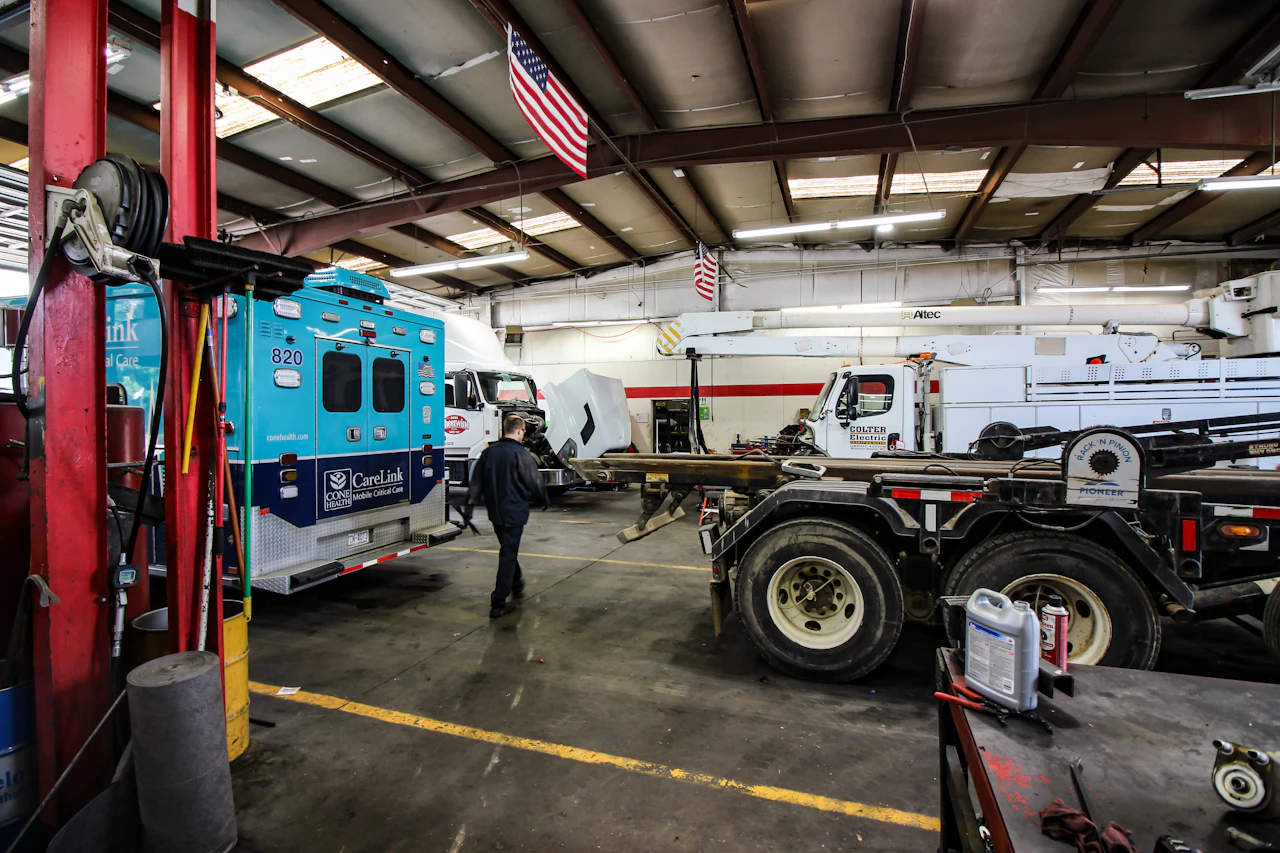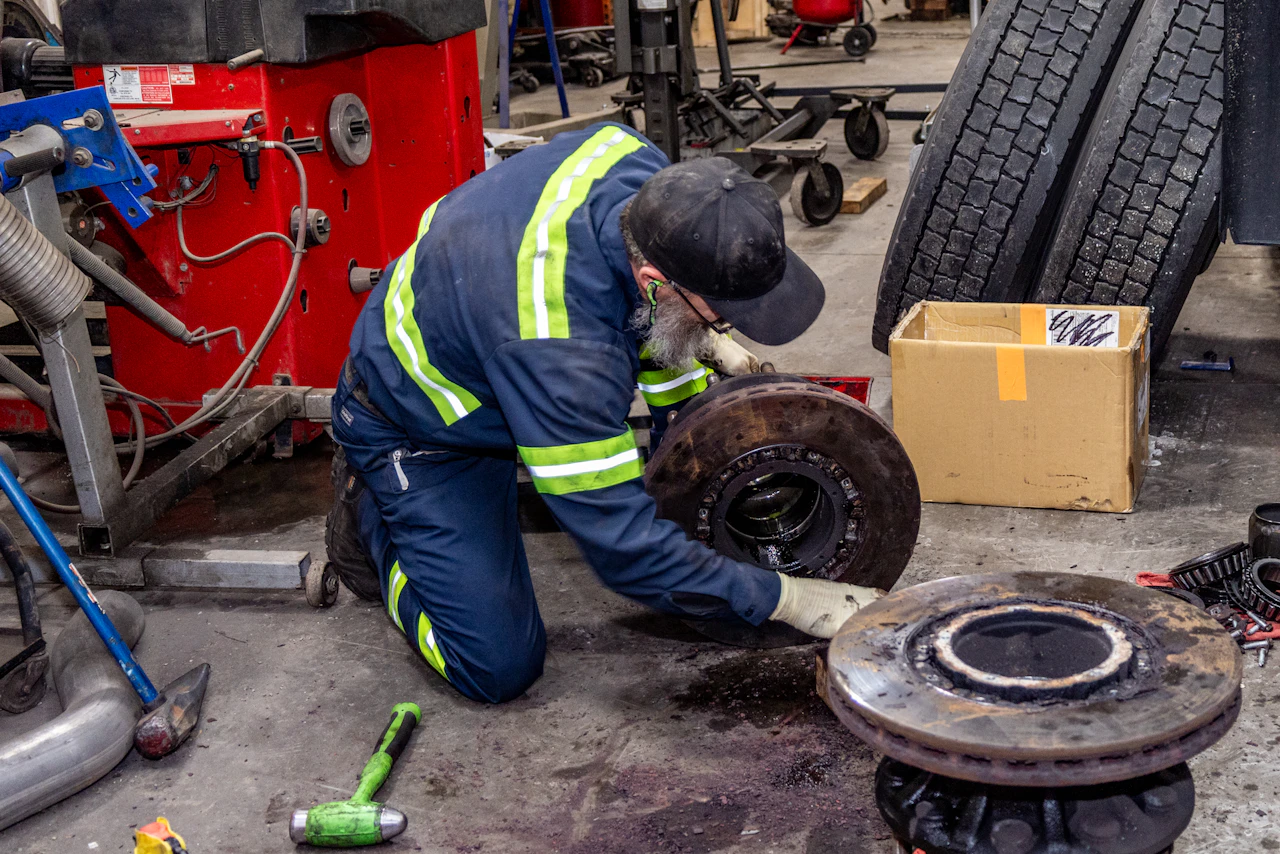The gap between one-off repairs and true diesel fleet service is the difference between juggling breakdowns and running a predictable schedule. Where standard repair chases symptoms, diesel fleet service targets patterns. Traditional work orders end at the door, and diesel fleet service follows each unit down the road with data. That’s how uptime becomes a plan. Here’s how true diesel fleet service outperforms “fix it when it fails” repair operations.
A Comprehensive Maintenance Program
A retail shop typically tackles a complaint and sends you on your way. Diesel fleet service starts upstream, mapping failure modes by unit, vocation, and season to prevent complaints in the first place. The core is a preventive maintenance strategy tuned to miles, hours, fuel type, and duty cycle, with clearly defined inspection points and thresholds.
Your strategy will feed parts stocking, scheduling, and technician staffing—so the bay has what it needs before your truck crosses the curb. In short, diesel fleet service trades reaction for rhythm, and rhythm wins.
Data-First Diagnostics
Standard repair often begins with, “We’ve seen this before.” Diesel fleet service leads with proof: codes, freeze-frame data, pressure and voltage captures, and before-and-after graphs. We correlate driver notes to scan data, then validate with smoke, leak-down, or flow tests.
It enriches the fleet record for next time. When diesel fleet service repeats this loop, patterns pop—an intake clamp that drifts at 90k miles, a sensor that skews after summer heat—so the next truck gets corrected before it fails.
Complete Vehicle Compliance
DOT doesn’t care how busy your week is. A standard repair may touch brakes or lights, and diesel fleet service audits compliance at every visit. The shop should measure brake stroke, document lining thickness, check ABS lamps and faults, verify lamp aim, and capture torque values and tire data. It adds value to your truck if the data lives in the file, so roadside and insurer questions are answered in minutes. Compliance doesn’t slow you down when it’s baked into diesel fleet service—it speeds you through audits.
Telematics And Planning
Most shops fix what’s here today. Diesel fleet service uses telematics to plan what’s coming tomorrow—scheduling PMs when trucks pass near the shop, flagging high idle, and identifying hard-braking routes that chew linings.
GPS-anchored alerts move units through maintenance with less deadhead. Tie that into fleet management software and you get automated reminders, digital inspection archives, and trend dashboards. With that visibility, diesel fleet service can cut missed services and line up parts before you even call.
Preventive Maintenance Turning Data Into Decisions
Preventive maintenance is more than an oil sticker. In diesel fleet service, we trend soot load, regen frequency, rail pressure command vs. actual, voltage drop, and cooling delta-T on a consistent road loop. When a value drifts, the schedule flexes: maybe that unit gets a proactive charge-air smoke test or aftertreatment diagnostics ahead of the interval. By letting data set the pace, diesel fleet service catches small drifts before they become tow bills, and it does so without over-servicing healthy trucks.
People, Process, And Tooling
Great techs need great systems. Diesel fleet service standardizes inspection templates, torque charts, photo documentation, and post-repair road tests. Technicians use scopes, smoke machines, and OEM software to verify the cause—and they close the loop with numbers you can read without a decoder ring. That elevates technician efficiency and chops diagnostic time. Standard repair wins by finishing faster, right, and once.
Parts and logistics
Every hour a truck waits for parts is an hour you’re not billing. Diesel fleet service leans on parts standardization: common SKUs across units, OE or OE-equivalent components, and shelf depth based on actual failure curves. We track batch numbers, warranty terms, and lead times so swaps are clean and comebacks rare. When your spec is unified, technicians move quicker, the parts room is smaller, and repair turnaround time drops—the quiet ROI of real diesel fleet service.
Where Fleets Feel The Difference
- Predictable ETAs and proactive scheduling shrink “unknowns”
- PM findings come with photos, gauges, and limits
- Units return with baseline numbers logged
- Warranty support is handled end-to-end
- Costs roll up as cost-per-mile, not mystery invoices
What You Should Expect From A True Fleet Program
- A written PM strategy customized to your routes and duty cycle
- Data-backed estimates with photos/graphs and clear limits
- Stocked parts per your spec and a warranty pathway
- Post-repair road test with numbers
- A monthly report: uptime, comebacks, top fault families, and next actions.
Experience the Diesel Fleet Difference
Bring your units to National Fleet Management for true diesel fleet service—preventive maintenance built to your routes, diagnostics proven with data, parts standardized, and results documented. We’ll turn scattered repairs into a system North Carolina fleets can rely on. Book your fleet assessment today. To learn more about truck repairs, read our article on repeated U-joint failures.

